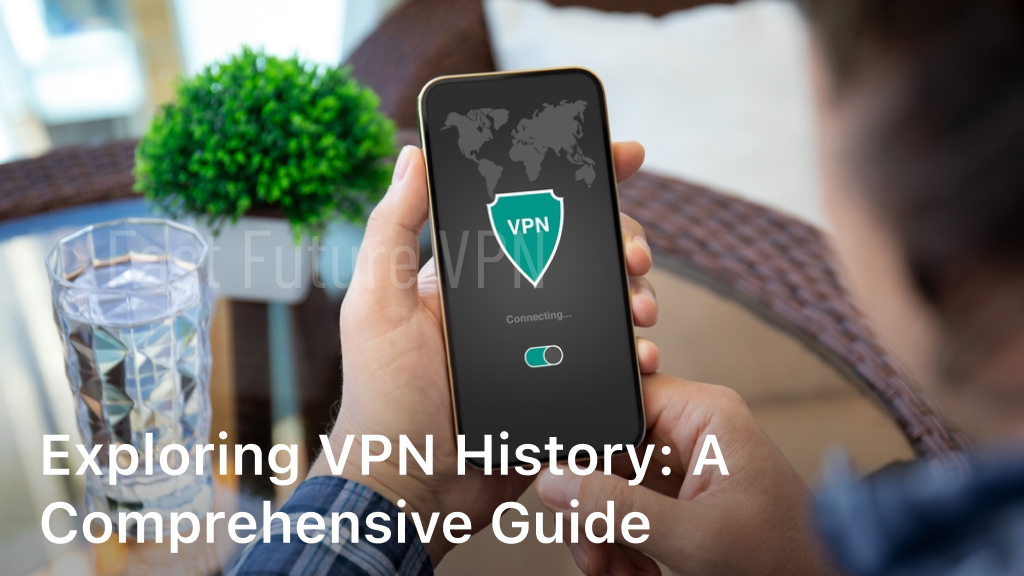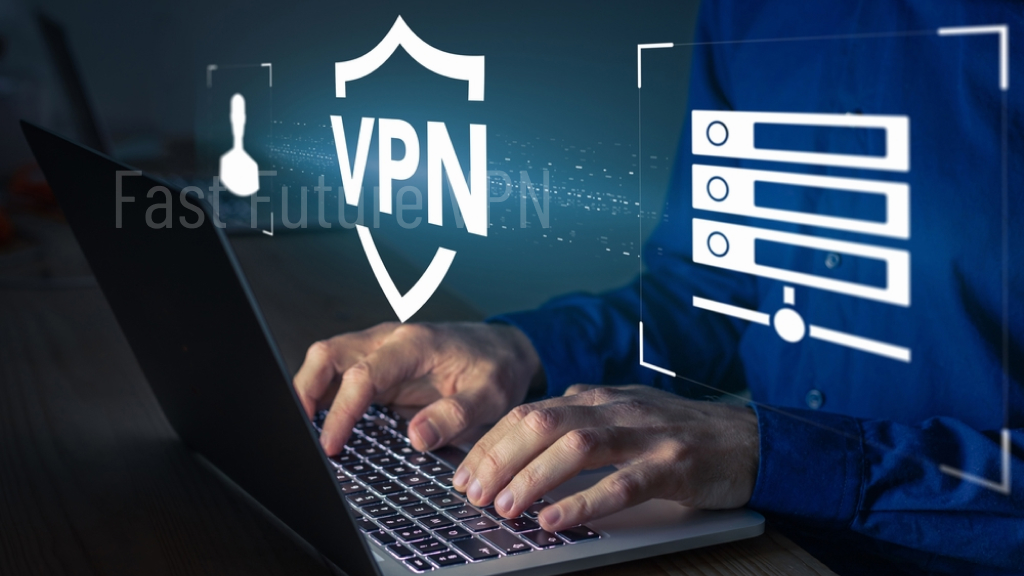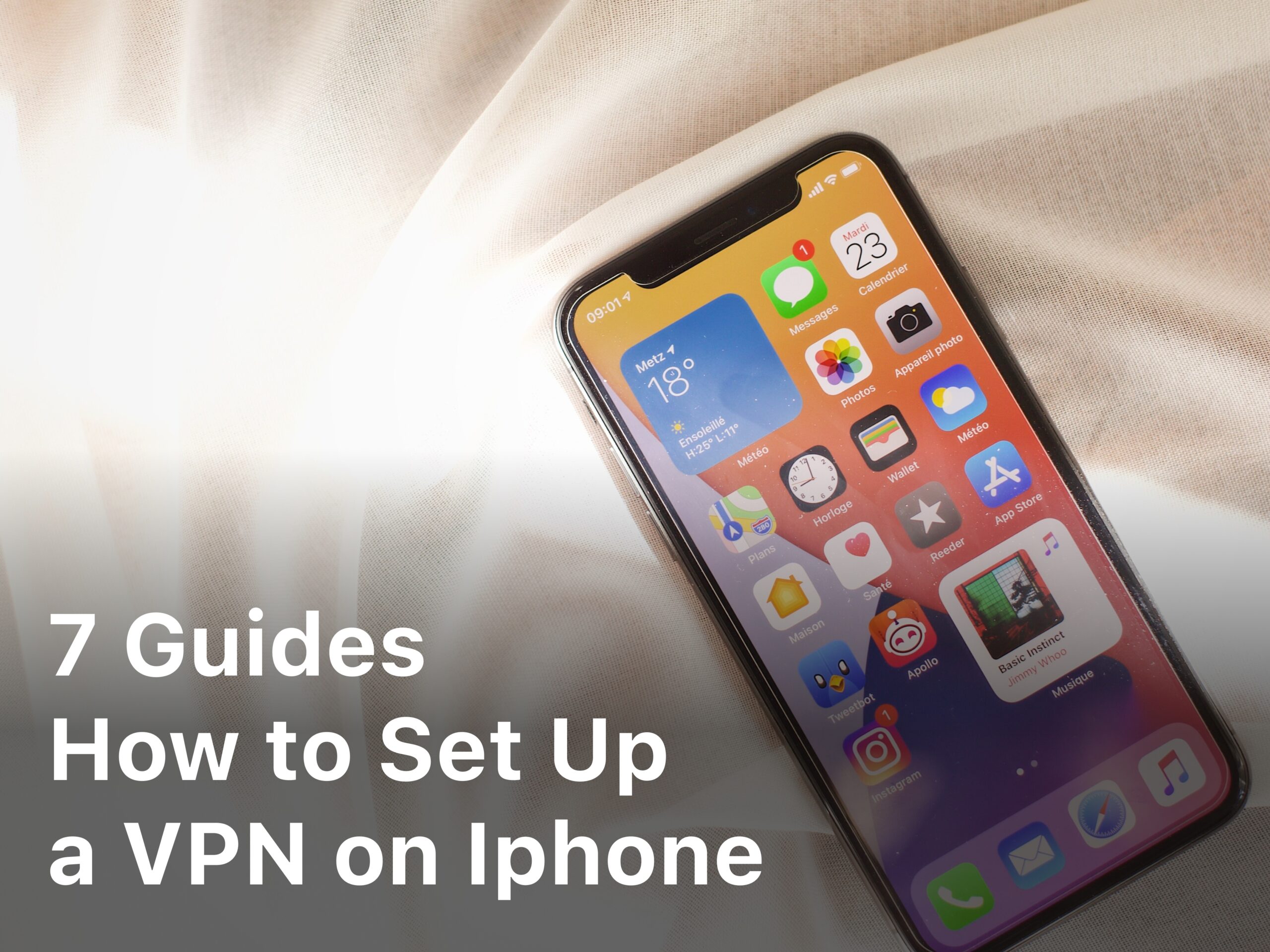
Welcome to our comprehensive guide on VPN history, where we will take an in-depth look at the evolution of Virtual Private Networks and their impact on digital security in the United States. In recent years, VPNs have become widely recognized as a critical tool in safeguarding online activities, protecting sensitive data, and providing online anonymity. In this guide, we will explore the origins of VPN technology, rise of VPNs in the United States, government regulation surrounding VPN usage, and the latest advancements in VPN technology as we prepare for the future. Join us as we dive deeper into the world of VPNs and their history.
What is a VPN?

A Virtual Private Network (VPN) is a technology that enables secure and private communication between two or more devices over the internet or any other public network. VPNs create an encrypted tunnel between your device and a remote server, which keeps your online activities and sensitive data safe from prying eyes. VPNs are a critical tool for enhancing digital security, protecting online privacy and confidentiality, and bypassing internet censorship.
VPNs were initially used by businesses to securely connect remote employees to their corporate networks. However, with the rise of cybercrime, online surveillance, and data breaches, individuals and small businesses started adopting VPNs to protect their online activities. VPNs are now widely used in countries with strict internet censorship laws and popular for streaming region-locked content.
VPNs mask your IP address and replace it with another IP address from a different location, making it difficult for anyone to track your online activities or monitor your internet traffic. VPNs also encrypt your data, making it virtually impossible for anyone to intercept or decrypt your online communications.
VPNs can be configured on a variety of devices, including smartphones, laptops, tablets, and routers. Once installed, they can be easily activated, providing users with a secure and private connection to the internet. The user-friendliness of modern VPNs has made them accessible to the average internet user, empowering them to take control of their online privacy and security.
Origins of VPN Technology
While VPNs have become a household name in the digital security industry, their origins can be traced back to the late 20th century. In the 1990s, companies began using VPN technology to connect remote workers to their corporate networks. This allowed employees to access internal company resources securely, regardless of their location.
The first VPN protocols were designed to authenticate remote users and encrypt data transmitted over the internet. One of the earliest VPN protocols was PPTP (Point-to-Point Tunneling Protocol), developed by Microsoft and released in Windows 95 OSR2. PPTP was widely adopted due to its ease of use and support for multiple operating systems.
However, PPTP had limitations in terms of security, and newer VPN protocols, such as L2TP/IPSec (Layer 2 Tunneling Protocol/Internet Protocol Security), OpenVPN, and IKEv2 (Internet Key Exchange version 2) were developed to address these security concerns.
L2TP/IPSec, for example, was developed by a group of researchers from Cisco, Microsoft, and other companies. It combines the security of IPSec with the functionality of L2TP, and is seen as a more secure alternative to PPTP. OpenVPN, on the other hand, is an open-source SSL/TLS VPN protocol that has gained popularity due to its flexibility and high level of security.
These protocols laid the foundation for the modern VPN technology that is used today. In the next section, we will explore how VPNs gained popularity in the United States and their impact on digital security.
Rise of VPNs in the United States
In the late 1990s, the United States started to witness the emergence of Virtual Private Network (VPN) technology. Initially, they were only used by companies to protect sensitive data that was being transmitted between their employees and headquarters. However, with the rise of cyber threats and the need for enhanced online security, individuals started to adopt this technology as well.
The use of VPNs in the United States grew rapidly, with more and more people realizing the importance of protecting their online activities from prying eyes. VPNs allowed people to surf the internet anonymously and kept their personal information secure from hackers and government surveillance.
VPNs quickly became popular among American expats living overseas, who wanted to access content that was only available in the United States. By connecting to a VPN server located in the US, they could bypass geo-restrictions and watch their favorite TV shows and movies on streaming platforms like Netflix and Hulu.
Businesses also benefitted from the widespread adoption of VPNs. The technology allowed them to expand their operations globally while maintaining secure communication channels between their employees and partners.
Overall, the rise of VPNs in the United States has played a significant role in improving digital security and privacy for individuals and companies alike.
Government Regulation and VPNs
The United States government has taken a cautious approach towards VPNs, citing possible security risks and the potential for illegal activities such as piracy. One notable example of government regulation is the Communications Assistance for Law Enforcement Act (CALEA) which requires telecommunication companies to provide backdoors for law enforcement agencies to intercept communication data.
VPNs have been subject to a number of legal challenges, both at the state and federal levels. In some cases, authorities have successfully compelled VPN service providers to share user information. Additionally, VPN use is not always legal in countries like China, Russia, and Iran where governments impose strict internet censorship policies.
Despite these challenges, VPNs continue to be widely used in the US, with many individuals and businesses recognizing their value in enhancing digital security and maintaining privacy.
Evolution of VPN Protocols
The development of VPN protocols has been a critical factor in the growth of VPN technology. Three significant protocols have emerged over the past few decades, each with its own advantages and drawbacks.
PPTP (Point-to-Point Tunneling Protocol)
PPTP was developed by a Microsoft-led consortium in the mid-1990s. It was the first protocol widely used for VPN connections and offered relatively fast speeds while being compatible with most operating systems. However, security concerns emerged over time, and PPTP is no longer recommended due to its susceptibility to hacking and cyber-attacks.
L2TP/IPSec (Layer 2 Tunneling Protocol/Internet Protocol Security)
L2TP/IPSec is a combination of two protocols, with L2TP responsible for creating the tunnel and IPSec responsible for providing encryption. L2TP/IPSec is more secure than PPTP and is still widely used today. However, it is slower than PPTP and less compatible with some operating systems.
OpenVPN
OpenVPN is an open-source protocol that has gained popularity in recent years. It offers high security through end-to-end encryption and is highly configurable, making it suitable for enterprise-level VPN solutions. It supports a wide range of operating systems, including Windows, macOS, and Linux.
Overall, the evolution of VPN protocols has helped improve digital security in the United States significantly. While PPTP may no longer be considered secure, L2TP/IPSec and OpenVPN have proven to be reliable and effective protocols for VPN connections.
VPNs and Online Anonymity
One of the key benefits of using a VPN is the ability to remain anonymous online. By routing your internet traffic through a remote server, your IP address and online activities are masked, providing you with a layer of privacy.
VPNs have become increasingly popular in countries where internet censorship is prevalent or where citizens need to protect themselves from government surveillance. For example, VPNs have been used by activists during protests to avoid detection by authorities and journalists working in countries with strict media restrictions.
However, it’s important to note that while a VPN can mask your IP address and online activities, it does not necessarily provide complete anonymity. VPN service providers may track certain information, such as your usage of their service and connection logs, and may be required by law to comply with legal requests for user data.
Additionally, there are various advanced techniques that can be used to de-anonymize VPN users, such as analyzing traffic patterns or monitoring multiple connections. As with any online activity, it’s important to weigh the risks and benefits and take necessary precautions to protect your online privacy.
Overall, VPNs can provide a level of online anonymity that is not possible with a standard internet connection. However, it’s important to understand the limitations of VPN technology and use it responsibly to protect your digital security.
VPNs and Geo-Restrictions
Another key benefit of VPNs is their ability to bypass geo-restrictions. When a user connects to a VPN server in a different country, they can access content that may be restricted in their own region due to licensing agreements or government censorship. This is particularly useful for travelers who may encounter geo-restrictions while abroad.
Additionally, VPNs can help individuals maintain their digital security while accessing content from different regions. For example, if an individual is traveling to a country with strict internet censorship laws, they can use a VPN to access the internet as if they were still in their home country, where online freedoms and privacy are better protected.
- VPNs can grant access to region-locked content
- VPNs help bypass government censorship laws
- VPNs protect online privacy and security when accessing content from different regions
However, it is important to note that not all VPN providers are capable of bypassing geo-restrictions. Users should do their research and choose a provider with a wide selection of server locations and the ability to reliably access restricted content.
VPNs in the Modern Era
The modern era has seen dramatic developments in VPN technology, resulting in unprecedented access to digital security features worldwide. With an increasing number of VPN service providers, VPNs are more accessible, user-friendly, and efficient than ever before, cementing their position as a central tool in safeguarding online privacy.
One significant advancement in modern VPNs is their compatibility with multiple platforms, including desktop computers, mobile devices, and even routers. This compatibility allows users to secure all their online activities conveniently, irrespective of their preferred device.
The rise of cloud computing and the increased use of remote access technology has also fuelled the growth of VPNs, making them a vital tool for businesses seeking to protect their sensitive data from malicious cyber attacks. Through secure data transmission and encryption protocols, VPNs have become an integral part of cybersecurity measures for modern businesses.
VPN Service Providers
The emergence of VPN service providers has led to a marked increase in VPN usage, as they offer a range of user-friendly features designed to enhance digital security. In addition, VPN service providers offer diverse pricing plans, ensuring access to VPNs is affordable for all. With a plethora of VPN service providers in the market, users have access to a wide range of options that boast faster connection speeds, advanced security features, and the ability to bypass even the most stringent internet censorship.
Despite their growth and popularity, VPNs have not been immune to online attacks, highlighting the need for continuous innovation and development in the VPN industry to stay ahead of an evolving range of threats. The future of VPN technology is likely to be characterized by advancements in machine learning, decentralization, and enhanced security measures, making VPNs an essential tool for ensuring digital security in the modern era.
VPNs and Cybersecurity Threats
The increasing frequency and severity of cyber attacks on individuals, businesses and government organizations has made digital security a top priority for all internet-connected users. VPNs are becoming a popular tool in the fight against cyber threats.
How VPNs Strengthen Cybersecurity
A VPN creates a secure, encrypted connection between a user’s device and the internet. This connection hides the user’s IP address, making it difficult for cybercriminals to track online activities, steal sensitive information, and launch attacks.
VPNs also enable secure remote access to company networks, protecting sensitive corporate information from cyber threats. In addition, VPNs provide an added layer of protection against public Wi-Fi hacking, phishing scams, and malware attacks.
The Limitations of VPNs in Cybersecurity
While VPNs offer significant benefits in cybersecurity, they are not foolproof. Cybercriminals are becoming more advanced in their techniques, and can still break into VPN-encrypted connections if they have sufficient resources and knowledge.
Furthermore, VPNs can sometimes provide a false sense of security, leading users to overlook other important cybersecurity measures such as keeping software up to date and avoiding suspicious links and downloads.
The Importance of Choosing a Reliable VPN Provider
As VPNs have grown in popularity, so have the number of VPN service providers. It is crucial to choose a reliable VPN provider that offers strong encryption, no-logs policy, and reliable servers.
Users should also be aware of free VPN services that may collect and sell user data, defeating the purpose of using a VPN for privacy and security.
In Conclusion
VPNs are a powerful tool in the fight against cyber threats, offering enhanced privacy, security, and peace of mind. However, users should not rely solely on VPNs and should implement other cybersecurity measures to fully protect their digital assets.
Future Trends in VPN Technology
VPN technology has come a long way since its inception, and its development is still ongoing. The following are some of the future trends that we can expect to see in VPN technology:
- Improved encryption: As concerns about online privacy and security continue to grow, VPN providers will focus more on improving their encryption technologies. We can expect to see stronger and more secure encryption algorithms being developed in the future.
- Decentralization: To enhance security, VPNs will move away from a centralized model towards a more decentralized architecture. This will distribute the VPN server network to different locations, increasing security and making it more difficult for hackers to identify and target specific servers.
- Multi-platform compatibility: With the increasing use of multiple devices by users, VPN providers are expected to develop technology that enables easier integration and compatibility of VPNs across different platforms.
- AI integration: Artificial intelligence is already being integrated into VPN technology to enhance its functionality. We can expect to see more AI-driven features being developed to improve the efficiency, performance, and security of VPNs in the future.
These are just a few developments we can look forward to in VPN technology. As users demand greater privacy and security, VPN providers will continue to innovate and advance their technologies.
Conclusion
Through this comprehensive guide on VPN history, we have traced the evolution of VPN technology and its impact on digital security in the United States. From its origins in corporate networks to its widespread use by individuals and businesses, VPNs have revolutionized the way we safeguard our sensitive data and online activities.
As we have seen, VPNs have also enabled online anonymity and bypassed geo-restrictions, granting users access to region-locked content and overcoming internet censorship. However, it is important to note that VPNs are not a foolproof solution to cybersecurity threats, and users should remain vigilant in protecting their devices and online identities.
The future of VPN technology looks promising, with advancements in encryption, decentralization, and multi-platform compatibility on the horizon. As the digital landscape continues to evolve, VPNs will undoubtedly play a crucial role in ensuring online privacy and security.
Overall, understanding VPN history and its significance in digital security is essential for anyone navigating the complex world of the internet. By prioritizing our online safety and privacy, we can ensure a more secure and stable digital future.
FAQ
What is the history of VPN?
VPN, or Virtual Private Network, has its origins in the late 20th century. It was initially developed as a way to secure and encrypt data transmitted over corporate networks.
How did VPNs gain popularity in the United States?
VPNs gained popularity in the United States as individuals and businesses started recognizing the need for online privacy and security. VPNs provided a way to safeguard sensitive data and protect online activities.
What is the government’s stance on VPN usage?
The government regulates VPN usage in the United States. While VPNs are legal, there are guidelines and restrictions surrounding their use, mainly to prevent misuse or illegal activities.
What are VPN protocols?
VPN protocols are the set of rules and procedures that govern the secure transmission of data over a VPN connection. Examples of VPN protocols include PPTP, L2TP/IPSec, and OpenVPN.
How do VPNs enable online anonymity?
VPNs hide users’ IP addresses by routing their internet traffic through servers in different locations. This enables online anonymity as the user’s actual location and identity are masked.
Can VPNs bypass geo-restrictions?
Yes, VPNs can bypass geo-restrictions by allowing users to connect to servers in different countries. This grants access to region-locked content and helps overcome internet censorship.
How have VPNs evolved in the modern era?
VPNs have become more accessible and user-friendly in the modern era. With advancements in technology, VPN service providers have emerged, offering easy-to-use applications and a wide range of server locations.
Are VPNs effective in mitigating cybersecurity threats?
Yes, VPNs play a crucial role in mitigating cybersecurity threats. By encrypting internet traffic and masking users’ IP addresses, VPNs protect against hacking, identity theft, and other malicious attacks.
What are the future trends in VPN technology?
The future of VPN technology holds advancements in encryption, decentralization, and multi-platform compatibility. Innovations in these areas will contribute to improved security and user experience.
What are the key takeaways from this guide on VPN history?
Summarizing the key points, VPNs have a rich history starting from their origins in corporate networks. They have gained popularity in the United States for their role in enhancing digital security and privacy. VPNs enable online anonymity, bypass geo-restrictions, and protect against cybersecurity threats. As technology advances, VPNs will continue to evolve, offering new features and functionality.




